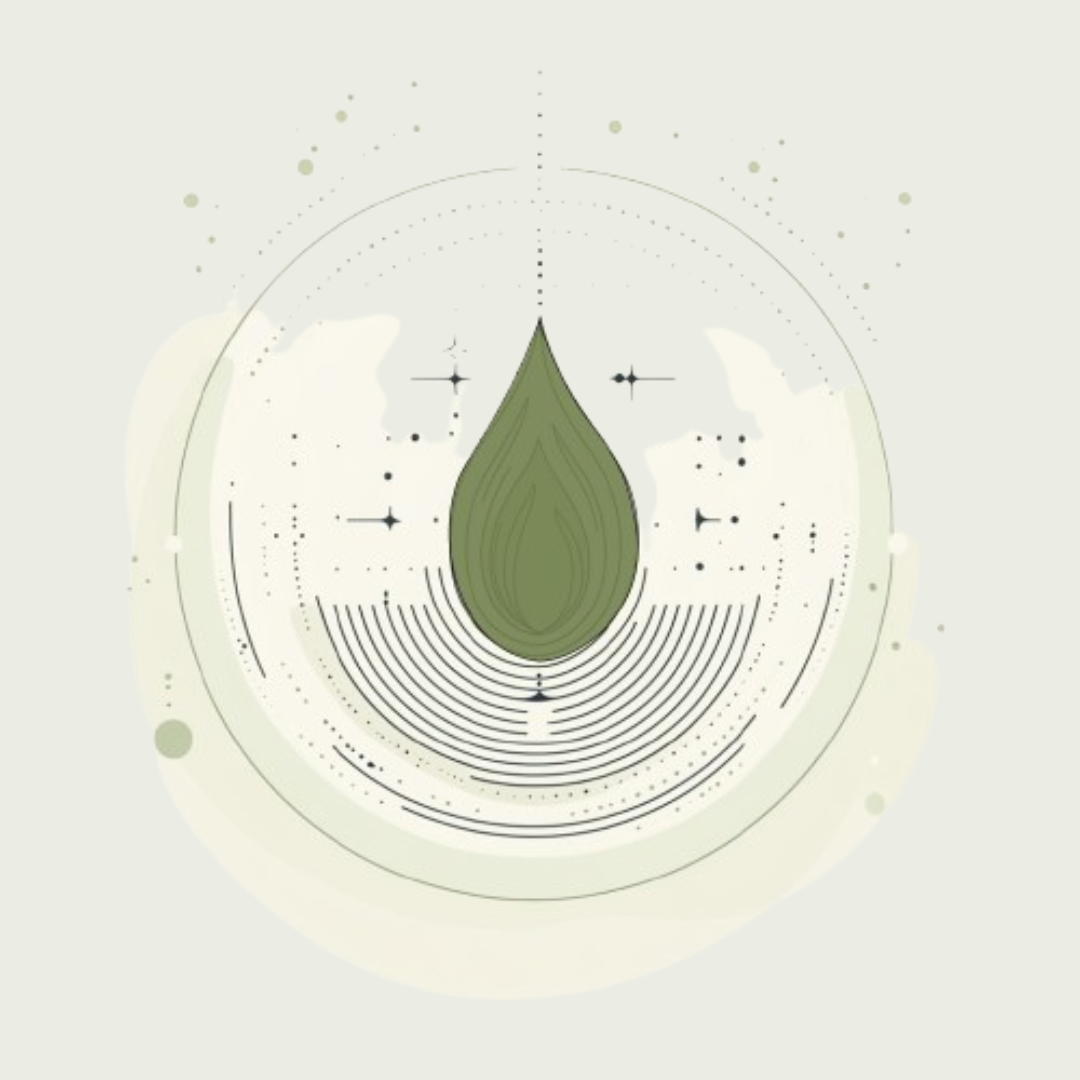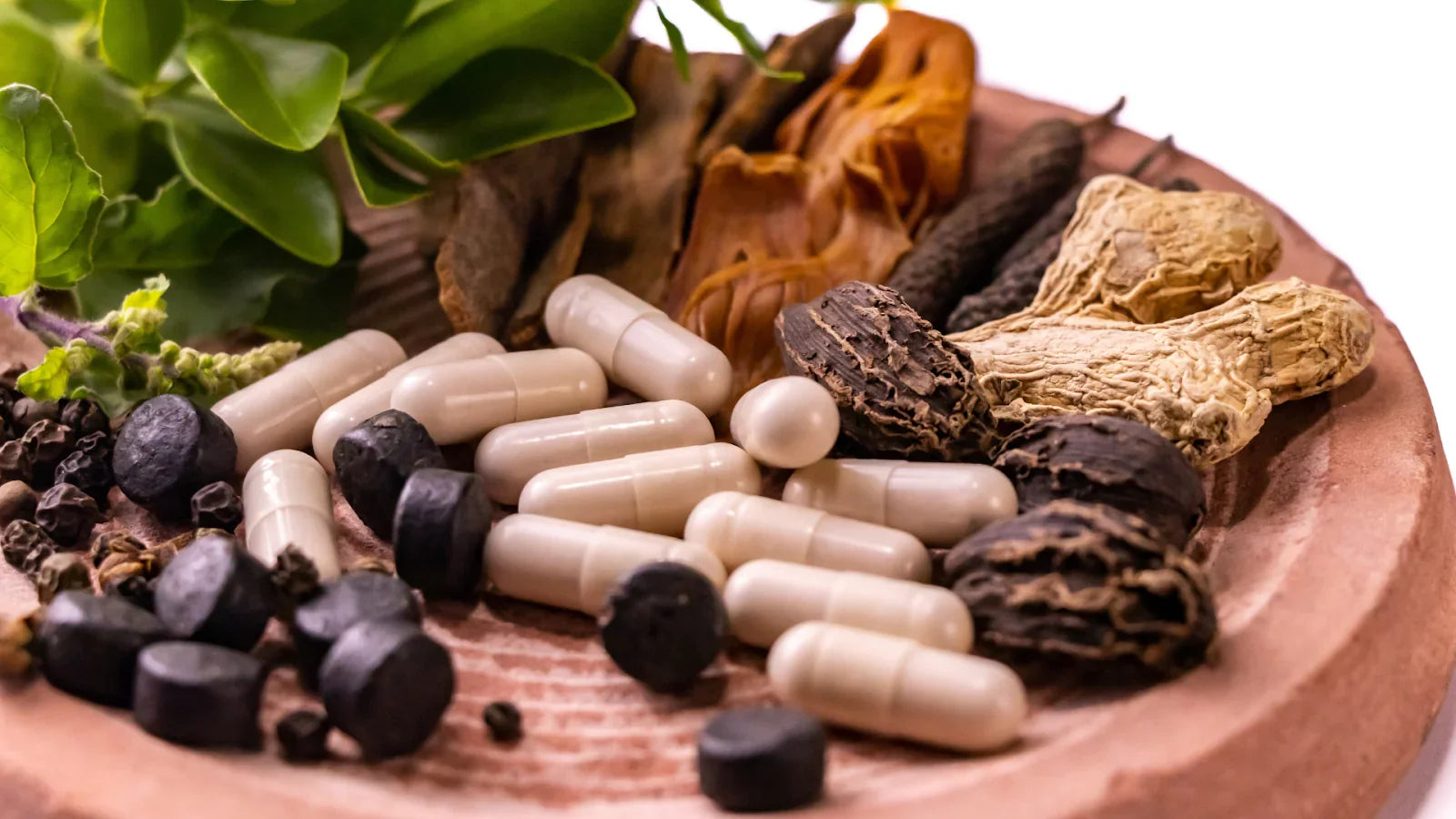Highlights
Hearing the word “cancer” can feel overwhelming, but it doesn’t have to be.
Today, more people are not just surviving but living well after a diagnosis, thanks to early detection, better treatments, and supportive care.
While cancer sounds complex, at its core, it’s just the body’s cells growing in a way they shouldn’t. But here’s the comforting part, your body has built-in healing systems that are always working to bring things back to balance.
Ayurveda, the ancient science of healing, can support you in feeling stronger, calmer, and more in control internally. It works alongside your conventional treatment, helping reduce stress, boost overall well-being, and bring a sense of grounding during an uncertain time.
In this article, let’s explore how Ayurveda can be helpful in cancer treatments, being a gentle and empowering companion on your journey, as an added layer of care.
Ayurveda and Cancer: A Natural Approach to Healing
In Ayurveda, cancer is referred to as Arbuda (for malignant tumors) and Granti (for non-malignant growths). It’s seen as both an inflammatory and non-inflammatory condition. Cancer happens when there’s an imbalance in the body’s metabolism, which leads to faulty cell growth. This imbalance can also drain the body’s vital energy, known as ojas, which is essential for overall health and well-being.
Ayurveda believes that the three doshas—Vata, Pitta, and Kapha govern your body’s physical and mental health. When these doshas fall out of balance, it can lead to various health issues, with cancer being one of the most extreme outcomes. Here’s how each dosha plays a part:
-
Vata controls movement and the nervous system in your body. When it’s out of balance, it can cause dryness and irregularity, leading to excessive cell growth and possibly contributing to tumor formation.
-
Pitta, which governs digestion and metabolism, can cause inflammation and excess heat in the body. When Pitta is out of balance, it may fuel the growth of malignant cells.
- Kapha is responsible for structure and fluid balance. When Kapha is off balance, it can cause stagnation, leading to the accumulation of toxins and abnormal cell growth that results in tumors.
In ancient times, Ayurvedic physicians would observe these imbalances to detect early signs of cancer. Treatment was always personalized, taking into account the person’s unique situation, everything from their health condition to their mental strength.
Ayurveda focuses on restoring this balance through diet, lifestyle changes, and herbal remedies that address the root cause of the problem rather than just masking the symptoms.
How Does Ayurveda Approach Cancer Treatment?
The three primary pillars of Ayurveda, body, mind, and spirit, work in harmony to promote healing and recovery in cancer treatments. By re-establishing the balance, Ayurveda enhances immunity, supports internal healing, and facilitates recovery.
Dietary and Lifestyle Adjustments
A key aspect of Ayurvedic cancer treatment is dietary management. It places significant emphasis on a pathya, a balanced and nourishing diet to support the body during cancer treatment.
The goal is to consume warm, light, and oily foods to support digestion and strengthen immunity. Avoiding toxic foods and maintaining proper digestion is considered essential for the healing process. Though changing lifestyle habits can be challenging, it is a crucial step in achieving long-term health and wellness.
Detoxification and Immunity Boosting
Ayurveda emphasizes the importance of detoxifying the body to restore health. One key purification therapy used is panchakarma, a comprehensive system of treatments designed to cleanse the body of accumulated toxins.
Panchakarma involves a series of therapeutic processes, including massages, steam therapies, and special herbal treatments, which help to remove impurities and restore balance to the body’s systems. This detoxification process is followed by herbal remedies that support the body’s natural healing abilities and strengthen the immune system.
Read More: Panchakarma - Ayurveda’s Natural Cleanse
Healing Herbs for Cancer Management
Ayurveda offers a variety of herbs that have been shown to support cancer management by targeting the root causes of the disease. Some of the most well-known healing herbs used in Ayurvedic cancer treatment include:
- Long Pepper or Pippali (Piper longum): Known for its potent medicinal properties, long pepper is believed to stimulate digestion and enhance the effectiveness of other herbs.
- Chitrak or Leadwort (Plumbago zeylanica): Used for its anti-inflammatory properties, chitrak helps in detoxifying the body and regulating metabolism.
- Calamus or Sweet Flag (Acorus calamus): Often used for digestive health, calamus is believed to have immune-boosting properties that can help fight cancer.
- Turmeric or Haldi (Curcuma longa): A powerful anti-inflammatory herb with antioxidant properties, turmeric has been extensively studied for its potential in cancer prevention and management.
- Manjista or Indian Madder (Rubia cordifolia): Known for its detoxifying properties, manjista helps in cleansing the blood and strengthening the immune system.
In addition to these common herbs, Ayurveda recommends specific remedies for the management of tumors.
Classical Remedies for Cancer
The application of the Banyan leaves and Kuth (Indian Costus) is believed to relieve tumor growth on bones. Another traditional remedy involves the regular intake of Malabar spinach, which has been recommended in the treatment of malignant tumors.
One ancient Ayurvedic recipe, Yavani Takra, is a fermented buttermilk made with the seeds of Henbane (Hyoscyamus niger). This is traditionally advised for the treatment of cancer, with ongoing research exploring its potential to reduce prostate cancer risk.
Ancient way of treating Benign tumours
Ayurveda employs various therapeutic methods, particularly for benign tumors (tumors that do not spread). Panchakarma therapies are used to purify the body and remove the toxins that may be contributing to the growth of tumors.
Following purification, herbs like Helleborus, commonly known as Christmas or Lenten roses, Guduchi, Kusta, Arjuna, and Bilwa are applied locally on tumors to help ripen them, after which they may be surgically removed if necessary.
In certain cases, Ayurvedic treatments incorporate specialized techniques to address the nature and location of tumors.
- Cauterization involves the application of heat to the affected area to remove or shrink the tumor. This technique is used in specific cases where the tumor is accessible and heat can help eliminate the abnormal growth.
- Leech therapy, also known as Raktamokshana, involves the use of medicinal leeches to draw out impure blood and toxins from the body. This therapy helps reduce swelling and improve circulation in the affected area, which can be beneficial in treating certain types of tumors.
- Alkaline therapy uses herbs and natural substances to create an alkaline environment in the body, which is believed to support healing and reduce acidity, a condition that may contribute to tumor growth.
After these techniques, the body is often treated with herbal decoctions that are medicinal herbal extracts designed to promote healing and recovery.
Ancient Treatments for Malignant Tumors
In advanced stages of cancer, or in case of Malignant tumors (spreads rapidly), Ayurvedic treatments combined with surgery may be employed. The process begins with fomentation (application of warm, wet coverings to a part of the body to relieve pain and inflammation) and cleansing. It is followed by the external application of warm herbs to liquefy the contents of the swelling. Afterward, surgery is performed to remove the tumor, followed by cauterization to prevent recurrence. Post-operative care is critical, and the wound is treated with healing herbs to promote recovery.
Conclusion
Ayurveda’s holistic approach to cancer care focuses on the body’s inherent healing abilities. By addressing the disease's root cause and restoring balance, Ayurveda helps strengthen the immune system, enhance internal healing, and provide overall support during treatment.
With continued research into Ayurvedic herbs and their potential for cancer management, Ayurveda remains a valuable complementary approach to modern cancer treatment, offering natural, effective support to those seeking healing and recovery.
Start supporting your healing journey today with Kerala Ayurveda’s natural remedies like Dasamoolajeerakarishta. Explore our range of immune-boosting herbs and treatments for enhanced recovery. You can also boost your recovery with Panchakarma therapy at AyurvedaGram.
FAQs
1. Is cancer mentioned in Ayurveda?
Yes, Ayurveda mentions cancer as Arbuda for malignant tumors, viewing it as a result of metabolic imbalances that cause faulty cell division.
2. What kills cancer cells naturally in the body?
The immune system naturally fights cancer cells, with support from foods like turmeric, garlic, and cruciferous vegetables that enhance immune function.
3. How do you make a cancer patient stronger?
Boosting a cancer patient’s strength involves proper nutrition, detoxification, and Ayurvedic remedies to enhance immunity and overall wellness.
4. Does Ayurveda have any side effects?
Ayurvedic medicine, a traditional system practiced in the Indian subcontinent, is considered to be devoid of adverse events when used correctly and under expert guidance. However, self-medication or improper use can sometimes lead to side effects.
5. What is the number one cancer-causing food?
Frequent consumption of processed food, deep-fried snacks, sugary drinks, and alcohol has been linked to a higher risk of cancer.





